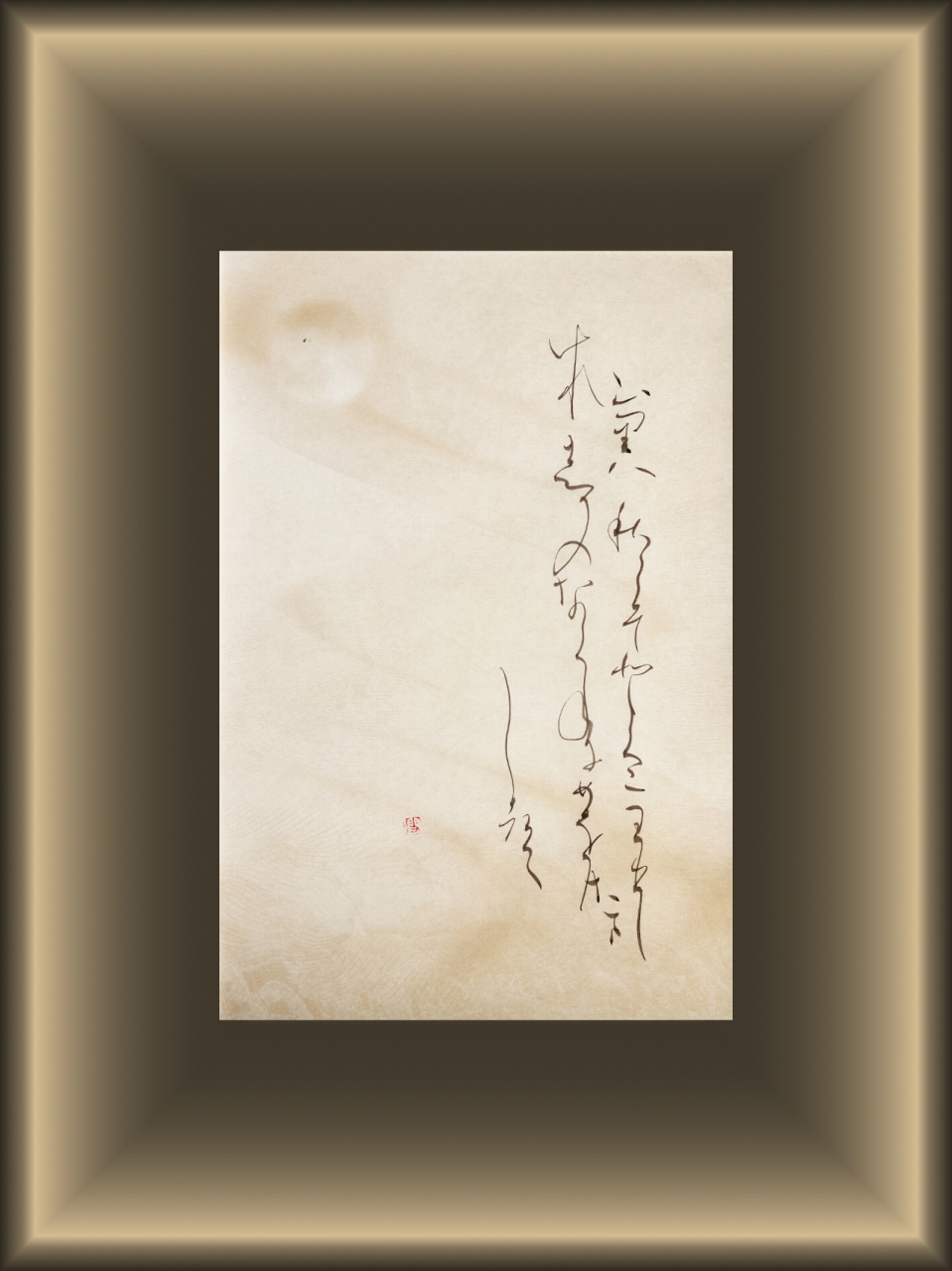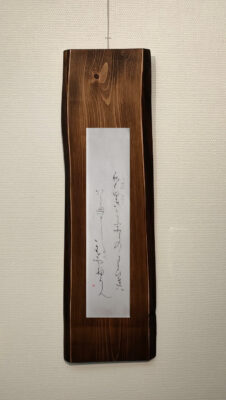#159 Autumn is especially depressing in human villages deep in the mountains..
| Size: | about 36×9 cm |
|---|---|
| Dressing: | framed |
What verse?
| verse: | Yamazato ha, aki koso kotoni, wabisi kere, shika no naku ne ni, me wo samasi tsutsu |
|---|---|
| (imho): | Autumn is especially depressing in human villages deep in the mountains. Waking up repeatedly to the sound of deer’s cries. |
| poet: | Mibu, Tadamine |
| in: | 893 |
Note
When writing waka poems of 10 centuries ago, the word “yamazato” comes up occasionally. I was curious about the meaning of “mountain village”, which appears along with the adjective “lonely”, so I decided to look into it.
To begin with, the word “Yamazato” does not appear in the Manyoshu about 1,300 years ago, and appears for the first time in the Kokinshu about 1,100 years ago. And it seems that its nuances it has change over time like this.
mere lonely -> with concrete location -> adding aesthetic appeal of nature
In the Tale of Genji, which was wrote in 11 century and is the oldest novel in Earth, also effectively expresses the sadness of the characters through the nature of the “yamazato”.
Mountain villages “yamazato”, away from the center of the capital, with fewer people and rich in nature, should have been indispensable settings for literary expression.


